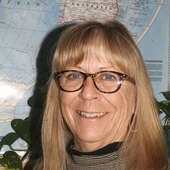- Research tips and McCook Brick Company- solid as a brick (12/16/24)
- Big Give appreciation and some railroad characters (11/15/24)
- George Randel becomes a landowner, gets married, and takes in a Buffalo Bill show (9/20/24)
- The memoirs of George F. Randel, early settler of Red Willow County (9/12/24)
- Vietnam War Memorial honors Nebraskans who served (6/13/24)
- McCook business promotions - just prior to 1893 stock market crash (5/30/24)
- Shall we dance? Meet you at the Gayway (12/8/23)
McCook’s first parochial school was German Lutheran in 1908
Friday, September 30, 2022
What you think you know and what you know are often miles apart. I had always thought that St. Patrick’s Parochial School was the first of its kind in McCook. Not so! In fact, St. Pat’s, as it is lovingly called, was 10 years after the first church based school in McCook, the German Evangelical Lutheran school which began life in a rented home on East 6th street back in 1908.
In advance of the opening the parochial school, McCook immediately had to correct the language concerning truancy: “Subdivision 16, Section 2 (as corrected). ‘Boards of education in cities and metropolitan cities shall appoint one or more truant officers who shall qualify as police officers; shall enforce the provisions of this law in the wards or districts for which they severally act; shall have authority to apprehend and take to his home or to some public, private or parochial school any child found in violation of this act.’” McCook Tribune, September 25, 1908
From the same publication: “McCook having had only public institutions until the present, it may not be readily seen just why this addition and this correction is made. But within the near future, in fact, beginning next week, Monday, Sept. 28, already, the city will also have a parochial school, and , considering the course of study, a first class school it will be. At least, the German Evangelical Lutheran missionary, who will be in personal charge, having grown up in the midst of first class eastern schools of this kind, shall endeavor to make also the local school such. The English branches will be the same as those taught in the public schools, everything graded, of course. The course of study will be that set down by the Chicago Conference of Teachers, being the best one in its class, enabling a child to attend the high school within the same, or, the child’s ability and diligence permitting, even in a small number of years than the child instructed at the hand of another course of study.”
“Besides this, from one to three hours per day will be devoted to German, i.e., the genuine “high” German. Here, too, above named course of study has the advantage over any other enabling a child not only to understand and to make itself understood but also to read and write German correctly in a comparatively short time. Of this opportunity for their children, especially the parents of German nativity should avail themselves and do away with that fault of conversing in the German language among themselves, but of being obliged to use the English language on in speaking to their “German” children. Do not forget, the English language may be the “Business Language,” but knowledge of the German is being demanded more and more by “The Boss” from his clerks, stenographers, bookkeepers and reporters. KNOWLEDGE OF THE GERMAN LANGUAGE IS AND ALWAYS WILL REMAIN A PART OF A GENERAL EDUCATION.”
Continuing: “As stated, this parochial school will be open next Monday, September 28. Already, however, the enrollment in the beginning will be and must be limited. For, in the absence of any other locality, one of the rooms in the cottage rented by Rev. William Brueggemann at 607 5th street East, will have to serve as a school room. This room is large enough for from 12 to 15 children only and 10 children are already on the list. This inconveniency will have to be put up with only temporarily, however, since an Evangelical Lutheran church or school will be built within the limits of McCook before the Christmas holidays.”
And so, the first parochial school in McCook was started with a curriculum heavily vested in the German language. For reasons quite apparent however, in 1918 the Lutherans agreed to remove German language instruction from their schools. World War I and II ended speaking and reading German as an advantage to securing employment.
SWNGS October 22nd Expo is shaping up to be a great way to pick up tips and tricks on research and DNA sites. Reserve your place by texting: 308-340-8221 or 350-0126.

